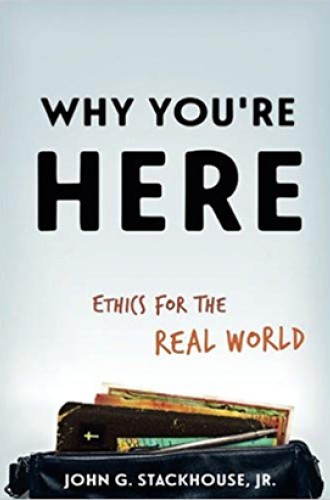A book about ethics—and nearly everything else
John Stackhouse's real-world ethics primer covers just about every subject, but it leaves out an important one.
John Stackhouse is one of North America’s most significant evangelical theologians. An erudite, witty, and ambitious scholar who has written over a dozen books in a career spanning three decades, he should be better known on the U.S. side of the border. A longtime faculty member at Regent College in Vancouver, he now teaches on the other side of Canada at Crandall University,
Why You’re Here appears aimed at building the Stackhouse brand not just as an evangelical theologian but as an evangelical ethicist, and a Christian realist ethicist to boot. A popularizing of his much larger book Making the Best of It, it aims to offer “ethics for the real world.” In the end it turns out to be a book about everything—not just ethics but also scripture, church, theology, mission, culture, science, politics, and so on. That is the nature of the field, of course. But the book does sprawl.
Methodologically, Stackhouse operates from within a somewhat modernized Calvinist-Kuyperian framework. This kind of approach confidently frames all of reality within a creation-fall-redemption (expressed here as redemption-as-shalom) paradigm and then slots different kinds of human organizations, institutions, and projects within their proper spheres. This paradigm seems to offer a sure way to perceive and respond to reality. It also positions Stackhouse to float above various left-wing or right-wing temptations in our polarized age.






